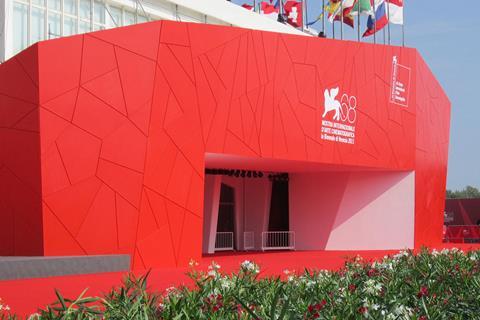Today (Aug 31), the Venice Film Festival joined Cannes, Locarno and Sarajevo in signing a pledge to improve gender parity across its organisation and programme.

Festival artistic director Alberto Barbera and president Paolo Baratta signed the accord alongside representatives of the Dissenso Comune, and Women in Film, TV & Media Italia.
Quizzed by Screen on reports that the pledge would contain amended wording from the versions signed by the previous festival, Barbera confirmed that the document has been given small alterations for its Venice iteration.
Baratta added that there were ”fundamental differences to be taken into account” and as such the Venice version uses wording that suggests the festival needs to continue its practices, implying that it is already making efforts to reach gender parity and that fundamentally the problem is not with the event itself. “We are ahead, what we have been doing up to now is a starting point,” he commented.
You can read the full pledge below.
The parity pledge, initiated by French organisation 5050x2020, and signed by Cannes chiefs in May, stated that the organisation will do the following: compile statistics to record the gender of the filmmakers and key crew of all submissions; a promise to improve transparency around selection processes by publicly listing the members of its selection and programming committees; and to work towards parity on their executive boards.
Venice bosses have previously insisted that the festival is not responsible for the lack of female filmmakers on show – this year’s Competition has only one female director, Jennifer Kent with The Nightingale.
Baratta again pointed to the fact that the number of film submissions from female directors roughly equates with the final selection (around 21%). That number points to wider industry problems, he said. “We are signing this document not because we have to – we all have the same basic aim, everybody must go along this road and do it together. I think we can mutually help each other.”
The pledge also refers to gender representation within organisations themselves. Baratta said that the Biennale (the organisation that runs the Venice festival among other art-related events) has 75% female employees and 75% female managers.
Barbera described the document as “a step forward” as well as “proof from the Biennale and myself that there is a total lack of prejudice in the establishment and the organisation of the festival”.
The director again doubled-down that he doesn’t “believe in quotas” and that the only thing that matters is the quality of the films presented, not who is behind the camera.
Two key elements of the pledge were highlighted by Baratta. The first is that the compiling of statistics and the database built will create “more precise information” and that “this will allow us to better work in regard to equal opportunities”.
The second is that the festival will host a gender seminar for the first time in 2019, which will be an opportunity for further interrogation of the problems at hand.
Venice gender parity pledge in full:
Today Paolo Baratta, President of La Biennale di Venezia, and Alberto Barbera, Director of the Venice Film Festival, signed a pledge with the associations Dissenso Comune and Women in Film, TV & Media Italia.
The pledge outlines three objectives, similar to those signed by other festivals:
1) Transparency about film selection details
2) Transparency about the structure of the selection committees, as well as management
3) An increase in the presence of women in the organisation’s structure
La Biennale readily signed the pledge, also in light of the fact that it has for some time already disclosed statistics and details on such aspects, and has also seen an increased female presence. Moreover, it has been working towards nurturing new talent in this sector via Biennale College.
As of next year, a panel on gender equality will be held at the Venice Film Festival, in conjunction with the associations involved, in order to gain a full, updated picture of the situation of women in film.
Venice, 31st August 2018















![[L-R]: Amanda Villavieja, Laia Casanovas, Yasmina Praderas](https://d1nslcd7m2225b.cloudfront.net/Pictures/274x183/6/4/1/1471641_pxl_20251224_103354743_618426_crop.jpg)









No comments yet